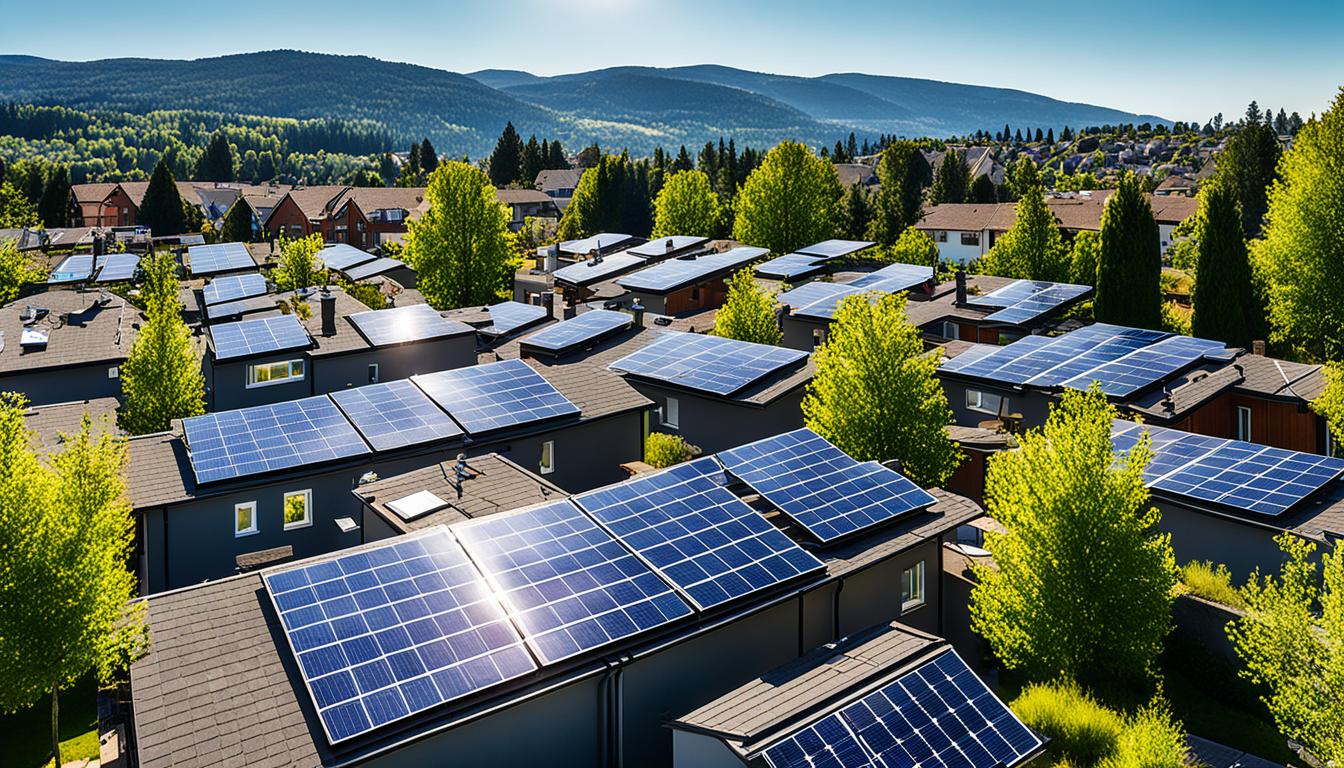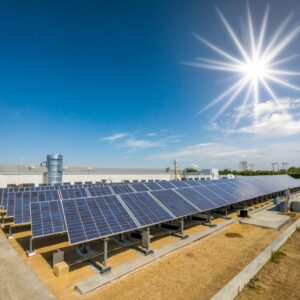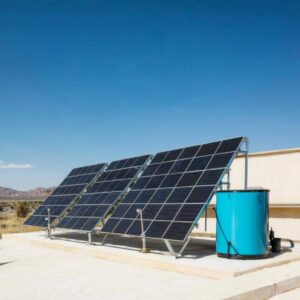
Solar energy systems are changing the way we get our power. They’re clean, renewable, and use the sun’s energy. This makes them a top choice for homes and businesses everywhere.
The power from the sun is both eco-friendly and endless. Solar panels turn sunlight into energy, which cuts down on harmful carbon emissions. This helps fight climate change, making the world a better place.
Using solar power can also save a lot of money. Both homes and businesses see big drops in their energy bills, from 20% to 70% or even more. The savings depend on how much energy is used.
Solar energy isn’t just for rooftops. It’s used in many ways, from individual homes to big solar farms. To use it, you need to understand how much energy you use, get help from pros, look into payment options, and keep your system running well.
Key Takeaways:
- Solar energy systems work by changing sunlight into electricity.
- They fight climate change by cutting down on carbon emissions.
- Using solar panels can save you a lot of money on energy costs.
- Solar power is flexible and works in many different areas.
- To start using solar energy, you need to know your energy use, find experts, look at payment choices, and keep your system up.
The Environmental and Social Impact of Solar Energy Systems
Solar energy has a deep effect on the environment and society. It is a big player in efforts for environmental health and sustainability. Unlike coal or oil, solar energy is clean and renewed by the sun. It also cuts down on harmful gases that cause global warming.
Just one MWh of solar energy can stop more than 500 kilograms of CO2. This shows how powerful solar energy can be for good. Using solar power more means we use less non-renewable stuff. This move pushes us towards a future that’s better for the planet.
The good effects of solar power aren’t just environmental. They also help people in many ways. One big way is by creating jobs. The more we use solar systems, the more jobs there are for people who install, keep up, and make new solar tech.
Also, solar power can bring electricity to places that don’t have it. This helps those areas grow and makes life better for the people there. It boosts the local economy and social life.
Choosing solar energy is smart for the environment and society. It fits well with the ESG approach, which looks at Environmental, Social, and Governance aspects. If we care about our planet and want to do what’s right, we should choose renewable energy.
The quote below summarizes the great impact solar energy can have. It fights climate change, provides jobs, and helps communities thrive. It’s a crucial part of our future and the planet’s well-being.
Environmental and Social Impact of Solar Energy Systems:
| Environmental Impact | Social Impact |
|---|---|
| Reduces greenhouse gas emissions | Creates employment opportunities in the renewable energy sector |
| Minimizes air and water pollution | Enhances energy access in underserved regions |
| Conserves natural resources | Improves quality of life in communities |
| Promotes sustainable development | Drives economic growth |
Transitioning to Solar Energy Systems: Practical Steps and Considerations
Moving to solar energy is a key step towards a more sustainable and cost-saving future. If you’re considering the change, several practical steps can ensure a smooth transition.
First, know how much energy you use. This helps in choosing the right size for your solar system. A skilled solar installer will check your place, plan the system, and install it.
There are many ways to make solar energy more within reach financially. Look into loans, leases, or power purchase agreements. Governments and local groups often offer help, like tax breaks and rebates.
Make sure your building is ready for solar panels too. Check if your roof and the spot for solar is good. Remember to keep your solar panels well maintained for best results.
By taking these steps and thinking about these key points, you’re on the path to using solar power well. This move not just cuts costs but also helps the planet in a big way.






